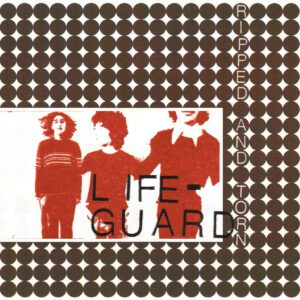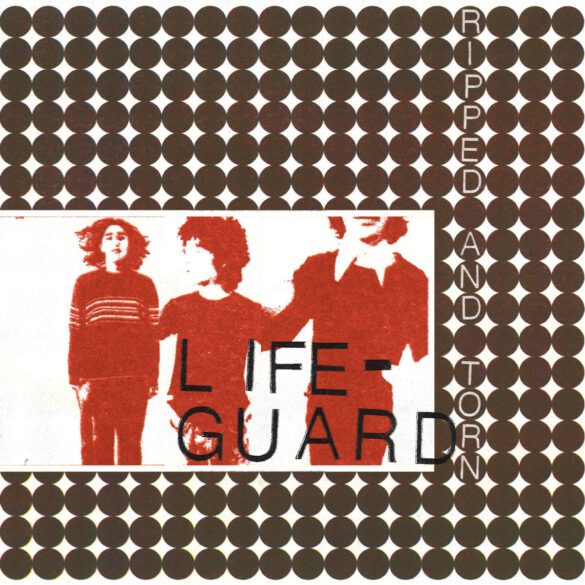
Label: Matador
Producer: Randy Randall
Release Year: 2025
Listen: Spotify / Apple Music
I know there are child labor laws, but I’m not certain at what point they apply to playing rock ‘n’ roll? Granted, I think the members of Lifeguard average out to around nineteen as Ripped and Torn’s release, but at nineteen I was pretty much a child. One who could chug! Hoo-ah! Sorry, that was a good age. But certainly not one where I was signing to Matador and touring with my band. Now, decades later I’m still playing guitar in the attic and am signed to nothing. But doing grown-up stuff. Point is, rock music was once and should continue to be an industry for the young. But as the indie rock genre becomes less popular, the bands able to sustain and maintain get older. And there are less and less Strokes-like kids like these young fellas who can both afford to and are willing to strap on instruments and play any and every space that will let them play.
That said, these kids may appear Strokes-like, but their music is way more DIY and noisy than slick and refined. I suppose you don’t get Randy Randall from No Age to produce your debut record if you don’t want your music to be a bit rough, fuzzy and experimental. We’ll call it “scruffy” for lack of a better term. And while I wouldn’t label it as lo-fi per se, there is definitely a vintage feel to the whole thing. As if they applied the 1970s punk filter to the whole affair, playing those battered amps with equally battered instruments. Certainly ones that had probably been around before their parents were born. It does sound at times like they’re playng in a submarine. Or the hull of a large ship. And I almost hate myself for enjoying it right out of the gate. This music that I know sounds like 50 different things and is influenced by all those one-named bands that I’m terrible at remembering the names of. And maybe some I do remember, but can’t quite qualify because my musical recall is limited.
Of course for all the more controlled tunes, there are songs that are more cacophonous than they are cohesive. Then there are tunes like “How to Say Deisar” that reminds me, weirdly, of a dance punk track from The Rapture. That funky bassline combined with the kind of atonal shouty repetitive chorus. You can feel that these kids could write a more melodic tune if they wanted to. Like they could veer into a more tuneful post-punk lane, but on some level they want to be more avant-garde. More Liars than Interpol. But, again, maybe I’m misunderstanding their aesthetic. Or their aspirations. Maybe they want to make music that sounds as if — as on “Like You’ll Lose” — someone is playing a lost psychedelic 60s song in an active smelting plant. I’m going to assume it’s all intentional. The three little throw-away tracks of electronic and mechanical noise that serve no seeming purpose other than to attack our eardrums. The clashing notes. The opaque production. All played by three kids who look like my Hebrew school mates from the 80s, but with cooler vintage store clothes.
I do wonder, as they evolve and maybe clean up some of the more experimental edges of their music (if that’s something they desire), if they don’t become a young Guided by Voices. Because while their music doesn’t necessarily sound like GBV, they are a Midwestern group that do have that definitive Anglophile way about them and, at times, a good pop sensibility. And, like on “T.L.A,” a penchant for workman-like harmonies and an obvious love of the tape-hiss vibe. I wouldn’t put that on them, of course, but that evolution wouldn’t at all surprise me. Though I’m sure it would probably surprise them. And, yeah, I’m sure they’re way too cool for that and don’t want to become the Strokes and date models and whatnot, but they definitely feel like a band who could kind of choose their direction from here — especially after building goodwill with this debut record.


